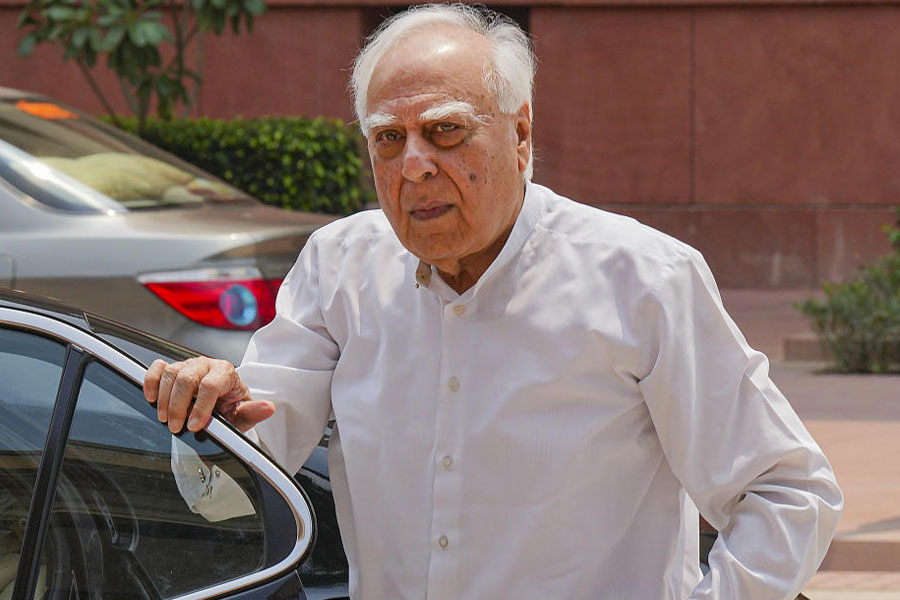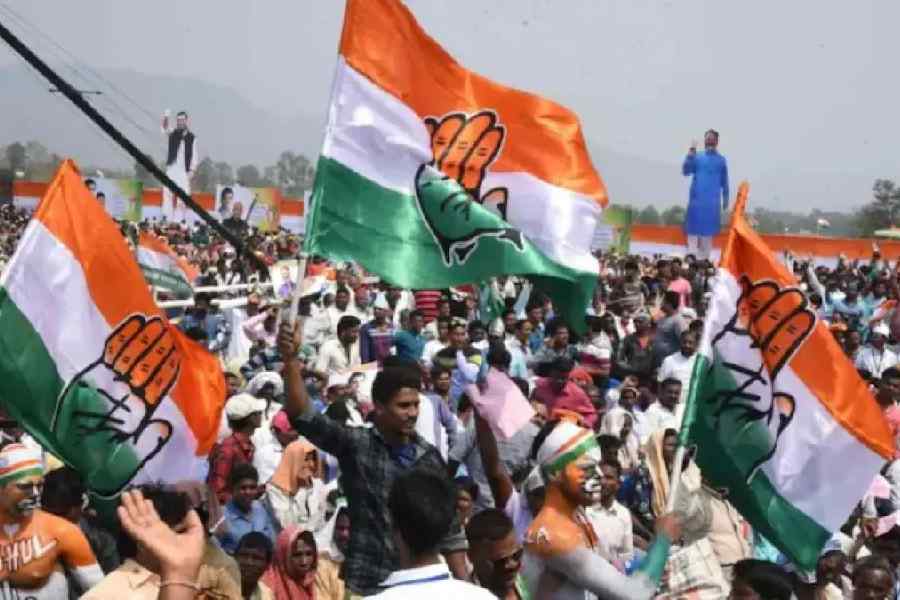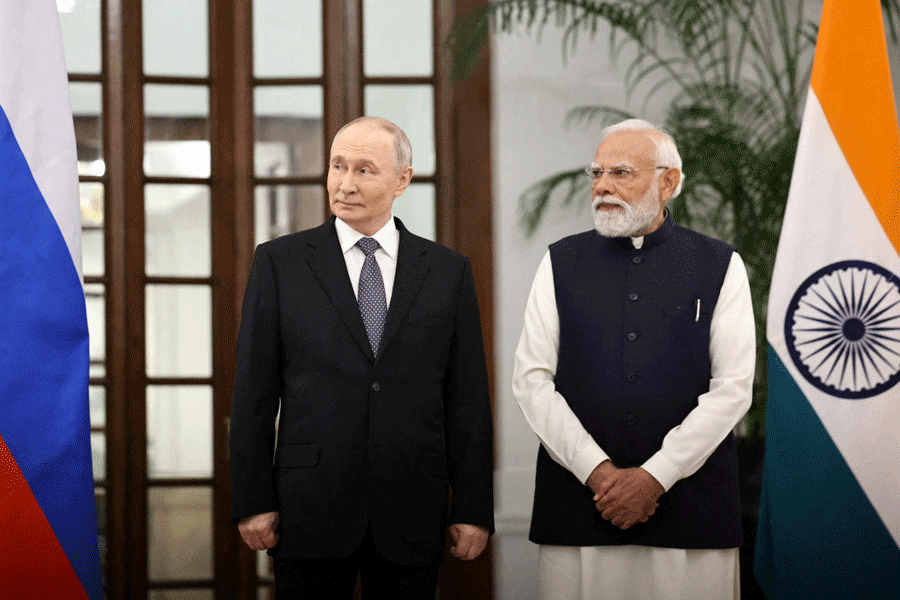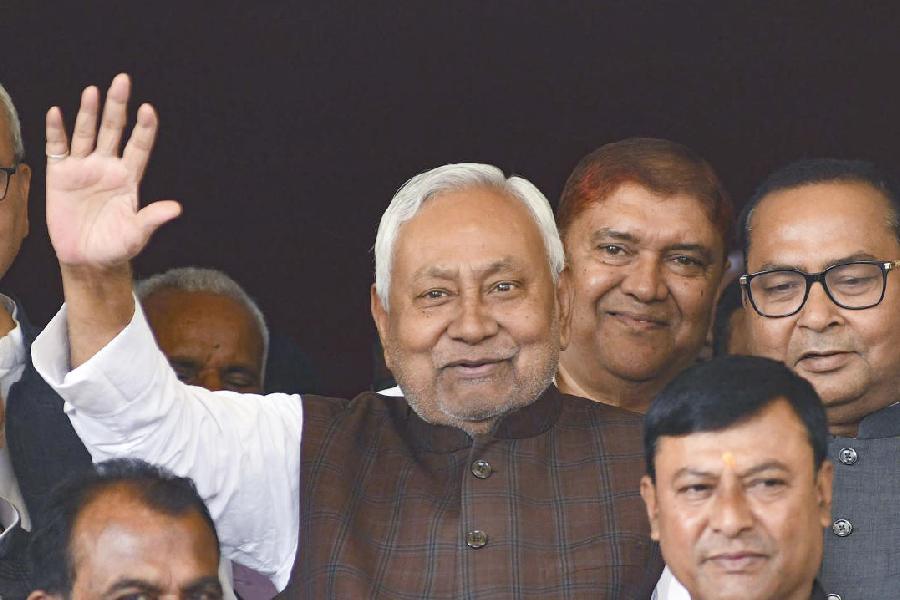The Narendra Modi government’s proposal to “reform” criminal jurisprudence — described by home minister Amit Shah as a much-delayed attempt to shed the colonial legacy — has evoked fears of greater control of institutions and individuals aimed at facilitating dictatorship in the country.
While top lawyer Kapil Sibal condemned the “dangerous move” and said it was a ploy to usher in a dictatorship, the Congress is suspicious of the intent and competence of the government and has demanded a public debate on the provisions.
Sibal said: “By bringing such dangerous legal provisions, they are making their intent clear — they don’t want democracy in the country. They want to usher in dictatorship through legal means. They are bringing laws under which action can be taken against public servants, judges, magistrates, bank officials, CAG…”
He added: “I want to alert the judges — such laws will place the country’s future in danger. They want a legal framework to ensure their writ runs across the systems, including independent institutions. It is dangerous for the independence of the judiciary and empowers the police system which works under the people in power, not the citizens. The problem in this country is the misuse of the police force for political ends. Wherever the BJP is in power, political opponents will be attacked and the police force is by and large working under the directions of the political persons in power...”
Sibal went on: “You give the police or enforcement agencies custody for 60-90 days, then it is a recipe for disaster. The way the sedition law changed, and put into place provisions relating to national security without defining under what circumstances a person can be prosecuted for national security. We have seen journalists, activists, students and teachers being prosecuted for sedition. Now they are expanding the ambit and keeping it vague. On the one hand, they are giving more power to the police and on the other, (they are) silencing people... this is unacceptable..."
Congress general secretary Randeep Surjewala said in a statement: “While the Bills (proposing changes to the criminal justice system) have been referred to the Select Committee of Parliament, the Bills and their provisions must be thrown open for a larger public debate by judges, lawyers, jurists, criminologists, reformers, stakeholders and the general public in order to stay away from the trap of bulldozing the entire criminal law structure without discussion that is so ingrained in the DNA of the BJP government. We hope better sense will prevail.”
The home minister introduced the Bhartiya Nyay Sanhita (BNS) to replace the Indian Penal Code, 1860, the Bhartiya Nagrik Surkasha Sanhita to replace the Code of Criminal Procedure, 1973, and the Bhartiya Sakshya Sanhita to replace the Indian Evidence Act, 1872.
Although Shah said an expert committee examined the existing British-era laws clause by clause, the government has not revealed who the panel members were and what recommendations they had made.
Arguing that “little knowledge is a dangerous thing”, Surjewala said: “The introductory remarks of the home minister gave away the fact that Amit Shah is ‘out of depth’, ignorant and oblivious to the entire exercise. Other than some credit seeking and point scoring in desperation, a hidden exercise, away from the public glare or stakeholders’ suggestions and wisdom, cannot serve the public purpose of reforming the criminal law structure of the country.”
He elaborated: “Shah argued that sedition is being repealed to protect freedom of speech. It is most unfortunate that he misled the people as Clause 150 of BNS 2023 proposes to make the sedition law more draconian. Clause 150 says, ‘Whoever, purposely or knowingly, by words, either spoken or written, or by signs, or by visible representation, or by electronic communication or by use of financial mean, or otherwise, excites or attempts to excite, secession or armed rebellion or subversive activities, or encourages feelings of separatist activities or endangers sovereignty or unity and integrity of India; or indulges in or commits any such act shall be punished with imprisonment for life or with imprisonment which may extend to seven years and shall also be liable to fine’.”
While the home minister had claimed that revolutionary changes had been made, Surjewala took them up point by point to argue this was not true.
“Shah said hate speech would now be punishable with three years for the first time,” the Congress leader said, pointing out that “Section 295A of IPC 1872 already provides for punishment up to 3 years in such a scenario.”
“Without naming ‘mob lynching’, Clause 101 of the proposed BNS provides for punishment of murder committed by a group of five or more persons, punishment includes death or life imprisonment or not less than seven years,” Surjewala said.
“Ironically, when such incidents were earlier covered under Section 302 IPC, the only two punishments were either life imprisonment or death.... Giving huge concession to mob-lynchers, the BJP government has watered down the lowest punishment for mob lynching to seven years,” the Congress leader pointed out.
Shah had lied and misled the House when he said that “Zero FIR” and the “concept of e-FIR” is being “introduced for the first time”, Surjewala said.
“The home ministry under the UPA government on 10.05.2013 had made it mandatory for all police stations to register Zero FIRs, irrespective of their territorial jurisdiction.... Former home minister Sushil Kumar Shinde inaugurated the CCTNS (Crime and Criminals Tracking Network and Systems) system on 04.01.2013,” he recalled.
On video-recording of the statement of rape victims, Surjewala said the provision was available in CrPC 1973. While Shah claimed that the new bill has made it mandatory for a court to pronounce judgment within 30 days, both the proposed and the old rules stipulate a maximum of 60 days for judgment in such cases, he added.
The home minister had said that through the bills, the government was making it mandatory to sanction or deny prosecution of public servants within 120 days of application or the same would amount to deemed approval. Surjewala said that in the Vineet Narain case of 1997, the Supreme Court had said: “Time limit of three months for grant of sanction for prosecution must be strictly adhered to.” Even Section 19 of the Prevention of Corruption Act, 1988, mentions a three-month period.
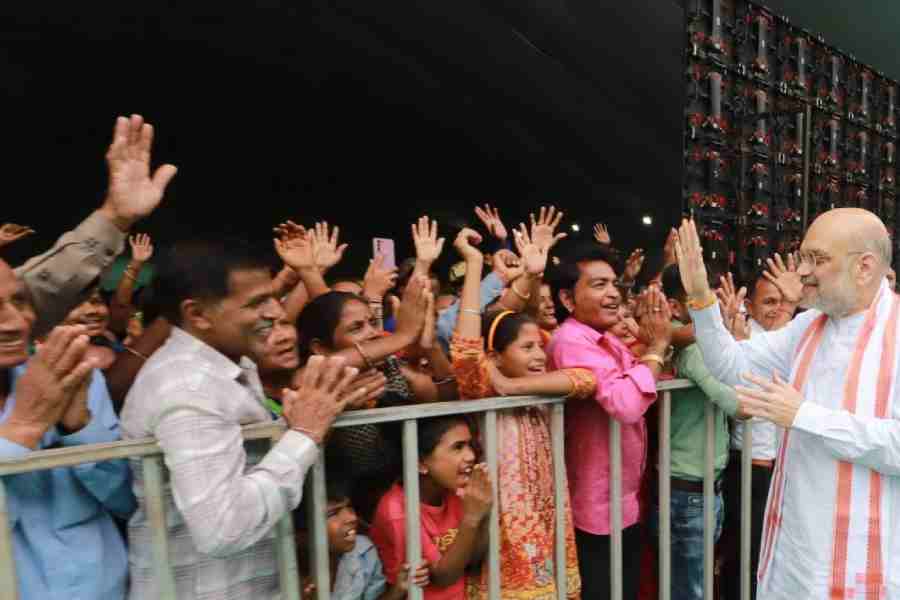
Amit Shah in Mansa, Gujarat, on Sunday. PTI picture
The auction of assets of proclaimed offenders is also not new as Section 83 of CrPC 1973 allows the attachment of property of an absconding person.
Shah said gang rape would now be punishable with 20 years or life imprisonment. Section 376D of the IPC was amended by the Congress-led UPA government in 2013 to provide for punishment up to 20 years in case of gang rape.
The home minister also said sexual offences against children would now be punishable with the “death penalty”. This provision exists in the Prevention of Children from Sexual Offences Act, 2012 (Pocso), enacted by the UPA.
Surjewala said the minister appeared unaware of the existing provisions of the law.
Shah said that the new regime would criminalise “sexual intercourse with women under false identity”, but punishment for such an act already exists. Again, while the minister said snatching was being made an offence for the first time, Sections 378 and 379 (theft) of the IPC already cover this.
To Shah’s claim that the Modi government was bringing provisions to punish in absentia absconding terrorists like Dawood Ibrahim, the Congress said Sections 82 and 299 of CrPC 1973 cover such a scenario.
Shah had said that terrorists and terrorism were being defined for the first time under the law. However, terrorist and terrorism are defined under Sections 15, 2(k), (l) and (m) of the Unlawful Activities (Prevention) Act, 1967, enacted by the Congress government led by Indira Gandhi.

